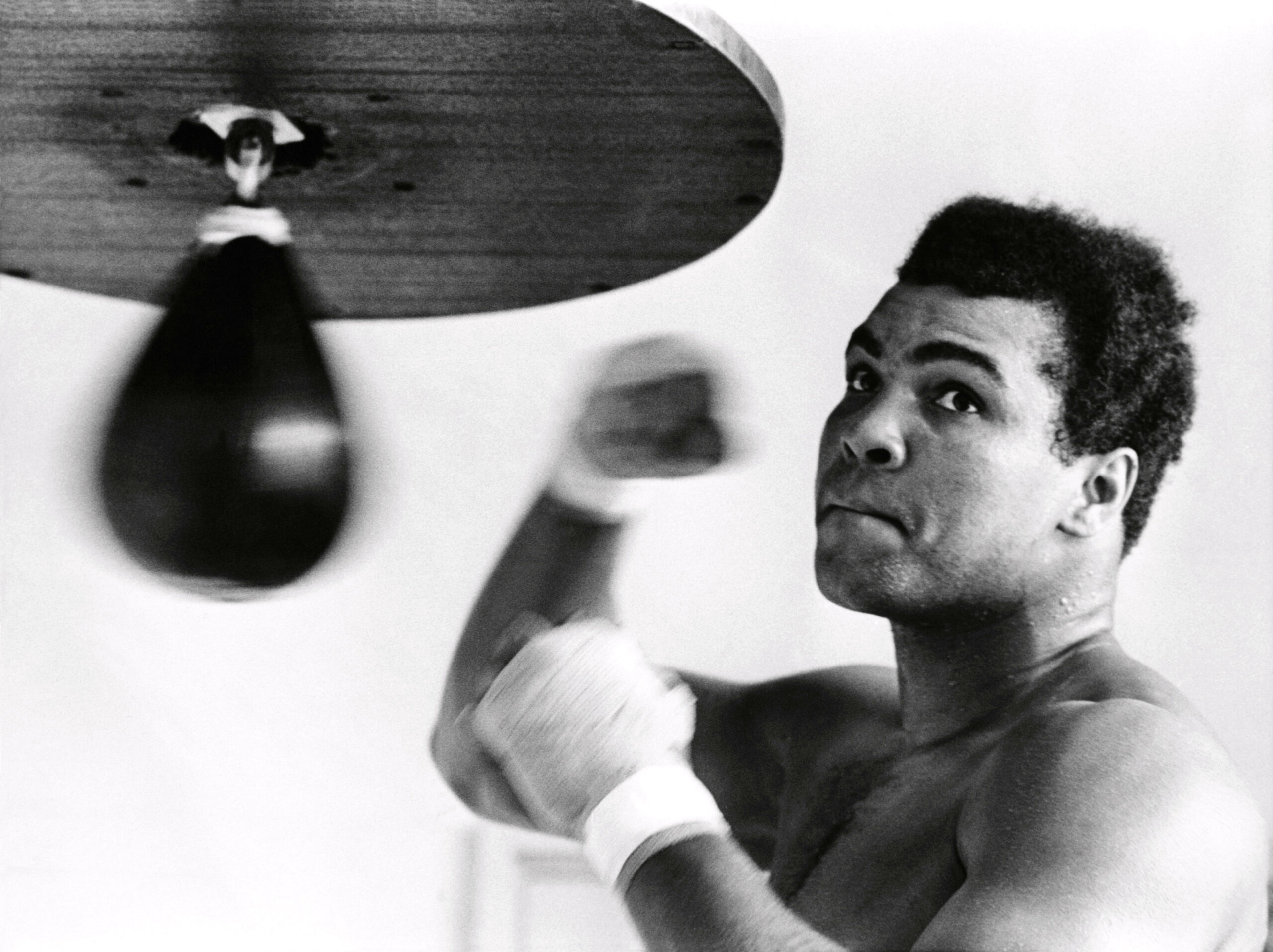 BBC News
BBC NewsBorrowing was £17.4bn last month, the second highest October figure since monthly records began in 1993.

George Achebe on how to make a career out of trading blows
This year marks 50 years since Muhammad Ali’s historic victory over Joe Frazier in the ‘Thrilla in Manila’ in 1975. The fight, widely regarded as one of the greatest battles in boxing history, tested the limits of human endurance and determination. Ali later described it as the closest thing to dying he had ever experienced. It was a moment that transcended sport, cementing Ali as not just an extraordinary athlete but a global cultural icon. His effortless movement, dazzling speed, and poetic trash talk mesmerized fans—but just as striking was the immense industry that surrounded him.
Norman Mailer’s The Fight captures the drama of Ali’s bout with George Foreman, but beyond the spectacle of the fight itself, it illustrates the vast machinery supporting the sport. Promoters negotiating deals, trainers refining strategy, media figures shaping narratives, and an entire economy of ticket sales, merchandise, and television rights—it’s a reminder that boxing has always been about much more than two fighters in the ring.
Boxing has expanded significantly since Ali’s time, both in terms of financial scale and employment opportunities.
In the 1970s, the sport was a multi-million-dollar industry; today, it generates billions globally. The number of people employed in boxing-related industries—ranging from coaching and promotions to media, sponsorship, and sports science—has surged. According to recent estimates, the global combat sports industry now supports over 150,000 jobs worldwide, with professional boxing events alone contributing upwards of $1 billion annually in economic impact. The evolution of broadcasting, digital streaming, and social media has further expanded career paths, making boxing not just a sport but a thriving commercial enterprise.
Economic Fisticuffs
Boxing isn’t just about the athletes who step between the ropes. It’s an ecosystem that supports thousands of livelihoods across the world. Whether you’re an aspiring boxer, a coach, a promoter – or even an entrepreneur in sports nutrition – boxing offers countless routes into a fulfilling career. The sport’s ability to provide opportunities, especially for those from tough backgrounds, is one of the reasons it remains so resilient.
In truth, boxing has long been about more than just glory—it’s about money. Few fighters have understood this better than Floyd Mayweather, who turned prize-fighting into a billion-dollar empire. By negotiating his own contracts and taking a direct cut of pay-per-view sales, Mayweather’s 2017 bout with Conor McGregor alone generated over $600 million, a staggering sum that demonstrated boxing’s ability to draw global audiences.
Similarly, Tyson Fury, with his larger-than-life personality, has capitalized on boxing’s promotional model, securing some of the biggest paydays in heavyweight history. These figures illustrate that the business of boxing extends far beyond the ring. From broadcasting rights and sponsorship deals to betting markets and merchandise sales, boxing remains one of the most lucrative sports in the world.
The contrast with Ali’s era is stark. When Ali fought Joe Frazier in the “Thrilla in Manila” in 1975, the total purse was $6 million. Fast forward to 2023, and Fury’s bout with Francis Ngannou reportedly earned him over $50 million alone. The rise of pay-per-view, streaming platforms, and sponsorship deals has created an industry worth billions, with major fights now generating upwards of $100 million in revenue.
Enter Jake Paul
Boxing has long been defined by its great rivalries—Ali vs. Frazier, Leonard vs. Hearns, Tyson vs. Holyfield. But in recent years, the rise of celebrity fighters has transformed the sport. Jake Paul, once dismissed as a mere YouTube entertainer, has forced boxing to sit up and take notice. By drawing millions of young viewers to his fights, he’s injecting fresh energy and commercial appeal into the sport.

3AHE95H New York, United States. 09th Apr, 2025. Jake Paul attends the Most Valuable Promotions Katie Taylor vs. Amanda Serrano 3 kickoff press conference held at The Theater at Madison Square Garden in New York, New York on Wednesday, April 9, 2025. (Photo by Udo Salters/SIPA USA). Credit: Sipa US/Alamy Live News
Paul’s most famous fight to date came against Anderson Silva on October 29, 2022, a bout that saw him face off against the former UFC middleweight champion, known for his striking prowess and longevity in combat sports. Paul secured a unanimous decision victory (77-74, 78-73, 78-73), knocking Silva down in the eighth round and landing 83 of 336 total punches (24.7 per cent accuracy) compared to Silva’s 79 of 251 (31.5 per cent accuracy). The fight was watched by hundreds of thousands of pay-per-view buyers, further proving Paul’s commercial appeal.
Critics were initially sceptical, but Paul’s win over Silva earned begrudging respect. ESPN’s boxing analyst Mike Coppinger remarked, “Whatever you think of Jake Paul, he just beat one of the greatest strikers in combat sports history. That’s a statement.” Even former world champion Shawn Porter acknowledged Paul’s progress, saying, “He’s not just playing at boxing anymore—he’s a real fighter now.” While purists continue to debate whether Paul elevates or dilutes the sport, it’s not really possible at this point to deny his impact. His ability to blend entertainment with boxing has led to increased fight purses, better sponsorship deals, and a newfound global interest in the sport. If nothing else, Jake Paul has shown that in today’s digital age, personality can be as powerful as punching power.
At the Grassroots: A Pathway Out
For many young people, boxing is more than a sport—it’s a lifeline. From the hardscrabble gyms of Philadelphia to community centres in inner-city London, boxing provides discipline, structure, and hope for those who might otherwise fall through the cracks.
Initiatives like England Boxing’s ‘Boxing Awards introduce young people to the sport in a safe and structured way. The USA Boxing Foundation funds grassroots projects aimed at reducing youth crime through boxing. These programs don’t just create athletes; they mould better citizens.
Former world champions like Anthony Joshua and Tyson Fury often speak about how boxing saved them. Joshua was a teenager heading down the wrong path before he found structure in the gym. Fury, battling personal demons, has used his platform to discuss mental health, proving that boxing is about more than just throwing punches—it’s about finding purpose.
Boxing also has a proud tradition of mentorship. For many young fighters, their first real role model is their coach. Figures like Cus D’Amato, who shaped Mike Tyson, or Brendan Ingle, who mentored Naseem Hamed, show that the trainer-fighter relationship is often about much more than technique—it’s about guidance, discipline, and self-respect.
Beyond individual mentorship, organizations like ‘Fight for Peace’ use boxing to reach young people in underprivileged areas. By combining boxing with education and personal development programs, these initiatives help create opportunities that extend beyond the ring.
Not only that but boxing has also long been one of the most diverse sports in the world. Unlike elite sports requiring expensive equipment or club memberships, boxing is open to all. Historically, it has provided a platform for fighters from marginalized communities, from Muhammad Ali standing up for civil rights to Claressa Shields fighting for gender equality in the sport.
The rise of women’s boxing has been particularly exciting. Once dismissed as a novelty, female fighters like Katie Taylor and Amanda Serrano are now selling out arenas, proving that women’s boxing can be just as thrilling—and lucrative—as the men’s game. Meanwhile, governing bodies are actively working on more inclusive policies for fighters from different backgrounds and gender identities
For all the debates about celebrity boxing and commercialization, the fundamentals of boxing remain unchanged. The hunger, the discipline, and the thrill of a well-timed counterpunch will always define the sport. But as boxing evolves, it continues to offer a vast range of career opportunities, from coaching to broadcasting to business.
At its best, boxing is about transformation—taking raw potential and sculpting it into something formidable. Whether it’s a young fighter learning discipline in a local gym, an aspiring promoter finding the next big star, or a seasoned champion using their platform to inspire, boxing’s impact goes far beyond the ring. And that is why, in 2025 and beyond, boxing will always matter.